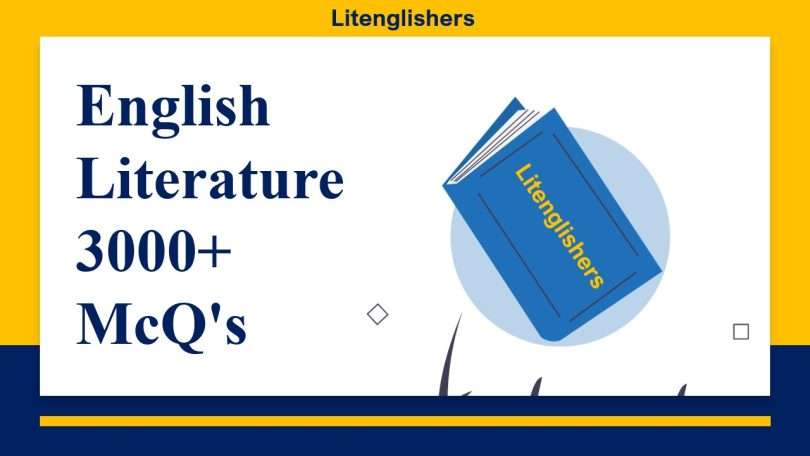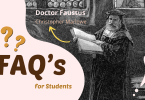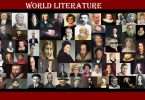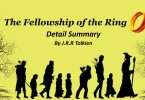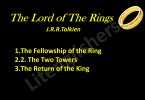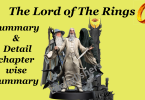English literature MCQ’s
Macq’s Famous playwright, poet, and others
Most crop up MCQs of Famous playwrights, poets, and others in past papers of English literature. Past papers of Famous playwrights, poets, and others English Literature MCQs. MCQs are a fundamental part of any competitive job associated with exams. The MCQs have specific numbers in any written test. That’s why everyone has to learn and remember the related playwright, poet, and others Mcqs. The Important series of Famous playwrights and poets related to Mcq’s are given below:
The following incomplete Mcq’s are followed by four options. You can choose the most appropriate option.
1: Why did “Poetry Quarterly ” cease publication in 1953?
(A) Owner Convicted in drugs case
(B) Owner convicted of fraud
(C) Rise in taxation on magazines
(D) Shortage of papers
2: Which of the following statement is correct?
(A) both B and C
(B) Shakespeare’s first child Susanna was born in 1583
(C) In 1585 twins were born and named Hamnet and Judith
(D) None of these
3: How many languages did Chaucer know ?
(A) 25
(B) 7
(C) 4
(D) 2
4: In the tragic history of “Dr.Faustus” Faustus was a?
(A) Greek scholar
(B) Italian Scholar
(C) French scholar
(D) German scholar
5: “The prince of poets in his time” on whom the grave inscription is given:
(A) Sir Philip Sidney
(B) Edmund Spenser
(C) John Donne
(D) John Milton
6: In which language the stories of Canterbury tale are written?
(A) Middle English
(B) English
(C) French
(D) Latin
7: Who succeeded Lily?
(A) John Milton
(B) Robert Greene
(C) Philip Sidney
(D) Christopher Marlowe
8: Which book did Edmund Spencer dedicate to Philip Sidney?
(A) The faerie Queen
(B) Complaints
(C) The Shepheaedes Calender
(D) Colin Clouts come home again
9: Thomas Kyd (1558-95) achieved great popularity in which of his first famous work?
(A) Jeronimo
(B) The Spanish Tragedy
(C) Cornelia
(D) The Rare Triumphs of Love and Fortune
10: “On his blindness” a collection of sonnets is written by___________.
(A) John Milton
(B) Shaespeare
(C) Sir Philip Sidney
(D) Edmund Spenser
11: In Paradise Regained” who regained the Paradise?
(A) GOD
(B) Jesus
(C) Adam and Eve
(D) Satan
12: Spencer married on June 11, 1594 to________.
(A) Elizabeth Wilton D/O Lord Grey Wilton
(B) Elizabeth Raleigh D/O Walter Raleigh
(C) Elizabeth Boyle D/O Richard Boyle
(D) Elizabeth Boyle D/O James Boyle
13: Who of the following is known as the child of Renaissance.
(A) Spencer
(B) Milton
(C) Shakespeare
(D) Jhonson
14: Of which poet was it said” Even if he’s not a great poet, he’s certainly a great something”?
(A) Elliot
(B) Cummings
(C) Brooke
(D) Kipling
15: In what form did Dylan Thomas’s ‘Under Milk Wood’ first become known___________.
(A) A stage play
(B) A radio play
(C) A short play
(D) A book of poetry
16: Ted Hughes was married to which American Poetess?
(A) Sylvia Plath
(B) Mary Oliver
(C) Assia Wevill
(D) Marianne Morre
17: Sassoon and Brooke wrote what kind of poetry____?
(A) War Poems
(B) Love poems
(C) Political satire
(D) Light verse
18: What is a funny poem of five lines called ________.
(A) Quartet
(B) Limerick
(C) Sextet
(D) Palindrome
18: Lines are taken from which poem “What is this life, if full of care, we have no time to stand and stare”.
(A) Leisure
(B) Comfort
(C) Tranquility
(D) The prelude
20: Complete this Shakespearean line” Let me not to the marriage of true minds bring___________?
(A) worries
(B) Troubles
(C) Impediments
(D) sorrows
21: ‘There was aware of her true love, at length come riding by’ This is a couplet from the Bailiff’s Daughter of Islington. What figure of speech is used by the poet?
(A) Synecdoche
(B) Euphemism
(C) Irony
(D) Metaphor
22: What is the study of meter, rhythm and intonation of a poem called as___________.
(A) Allegory
(B) prosody
(C) scansion
(D) assonance
23: Who has defined ‘poetry’ as a fundamental creative act using languages?
(A) H.W.Longfellow
(B) Dylan Thomas
(C) William Wordsworth
(D) Ralph Waldo Emerson
24: Which is an example of a proverb?
(A) Get a stake in our buisness
(B) You’re driving me crazy
(C) You can’t have your cake and eat
(D) The snow was white as cotton
25: The theme is________.
(A) the point a writer is trying to make about a subject
(B) an address
(C) a character
(D) a plot
26: what is the word for a “Play on words” ?
(A) simile
(B) Metaphor
(C) haiku
(D) pun
27: Who wrote “The winter’s Tale”?
(A) Marlowe
(B) Chaucer
(C) Shakespeare
(D) John Dryden
28: Which of the following writers wrote historical novels?
(A) Jane Austen and Charlotte
(B) Sir Walter Scott and Maria Edgeworth
(C) Taylor Coleridge
(D) Samuel Coleridge and P.B.Shelly
29: William Shakespeare was born in the year of_______.
(A) 1564
(B) 1567
(C) 1543
(D) 1582
30: Who wrote Canterbury Tales?
(A) Shakespeare
(B) Chaucer
(C) John Milton
(D) Robert Greene
31: Which of the following words describe the prevailing attitude of High-Modern Literature?
(A) Skeptical
(B) Authoritative
(C) Impressionistic
(D) Both A and B
32: ‘The Cambridge school’ refers to a group who emerged when?
(A) The 1900’s
(B) The 1920’s
(C) The 1960’s
(D) The 1930’s
33: What is a poem called whose first letters of each line spell out a word?
(A) Acrostic
(B) Haiku
(C) Epic
(D) Alliterative
34: From what century does the poetic form the folk ballad date?
(A) The 12th century
(B) The 11th century
(C) The 19th century
(D) The 17th century
35: What is the study of poetry’s meter and form called?
(A) Potology
(B) Scansion
(C) Prosody
(D) Rheumatology
36: In his poem Kipling said “if you can meet with triumph and _____________?
(A) Glory
(B) Ruin
(C) Disaster
(D) Victory
37: The collection of papers and correspondence of a well to-do-Norfolk family is known as__________.
(A) Letters to the margret Paston
(B) the Paston letters
(C) Magret Paston to John Paston
(D) To John paston
38: Which influential American poet was born on Long Island in 1819?
(A) Walt Whitman
(B) John Greenleaf Whittier
(C) Emily Dickinson
(D) Bernard Shaw
39: Which American writer published “A brave startling truth” in 1996
(A) Robert Hass
(B) Jessica
(C) Maya Angelou
(D) Micheal Palmer
40: The only play by Shakespeare which conforms to the classical unities___________.
(A) Twelfth Night
(B) Tempest
(C) Macbeth
(D) Othello
41: Father of Greek tragic Drama?
(A) Aristophanes
(B) Crates
(C) Cratinus
(D) Aeschylus
42: Peloponnesian war was _________
(A) Ancient Greek war
(B) Ancient Rome war
(C) World war 2
(D) Cold war
43: Rupert Brooke wrote his poetry during in which circumstances?
(A) Korean war
(B) 1st World war
(C) 2nd World War
(D) Cold War
44: Harold Nicholson described which poet as” very yellow and glum, perfect manners?
(A) e.e.Cummings
(B) John Whittier
(C) T.S.Eliot
(D) Walt Whitman
45: Which type of poem is Edward Lear associated with?
(A) Nonesense
(B) Epics
(C) Sonnets
(D) Nature
46: Which poem ends ‘i shall but love thee better after death’ ?
(A) Ode to a Grecian urn
(B) Ode to nightingale
(C) Let me not to the marriage of true minds
(D) How do I Love thee
47: Which of the following are Thomas Hardy’s books collection?
(A) The return of Native
(B) The poor Man and the Lady
(C) Chollttee
(D) None of these
48: What is the earliest surviving European poem?
(A) The Gilgamesh epic
(B) The Deluge epic
(C) The Homeric epic
(D) The Hesiodic epic
49: Where did Chaucer bury?
(A) Canterbury
(B) Westminster abbey
(C) Chapel at Windsor
(D) London
50: Which of the following is not an English poet?
(A) Alexander pope
(B) John Miton
(C) Victor Hugo
